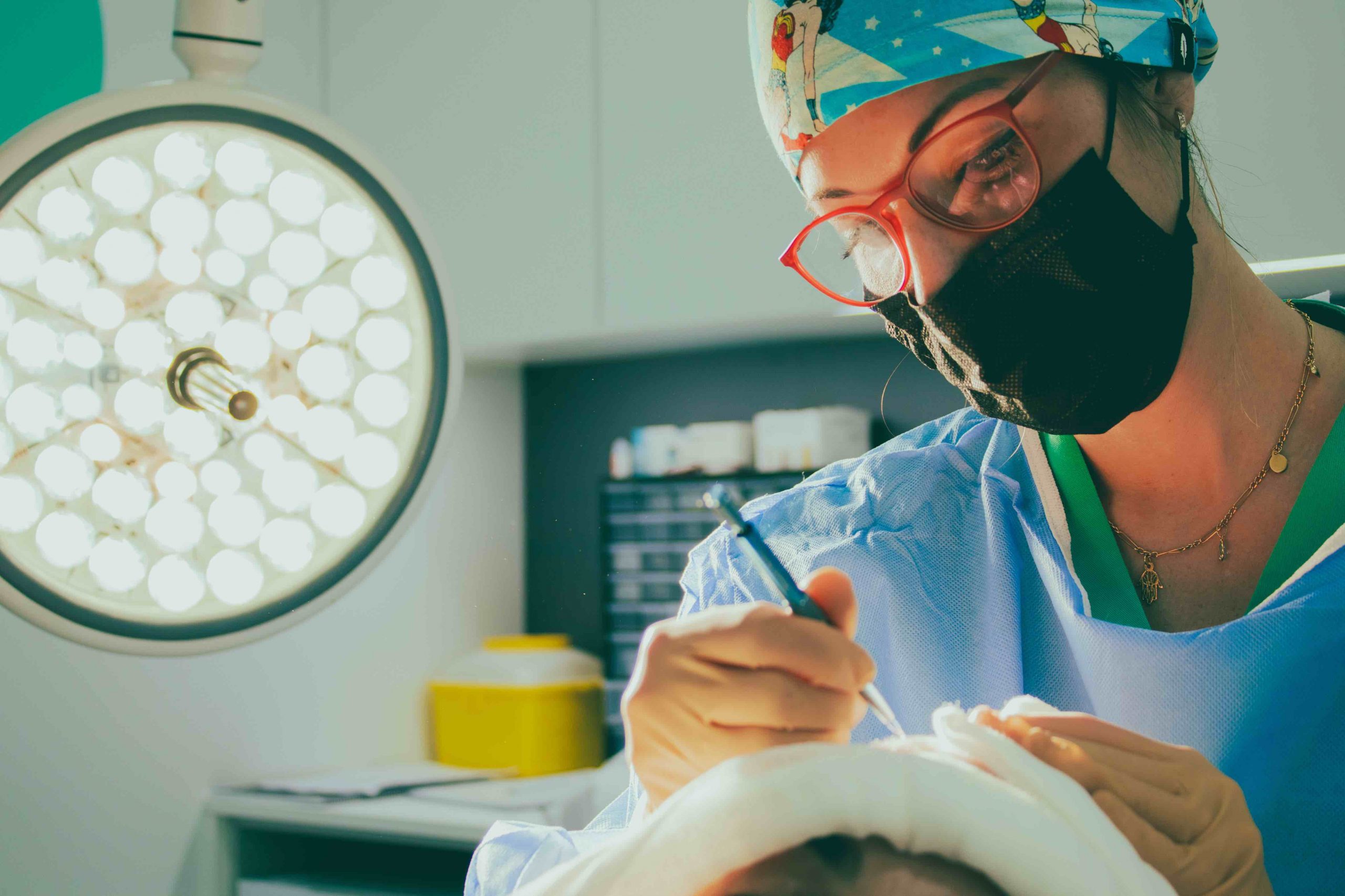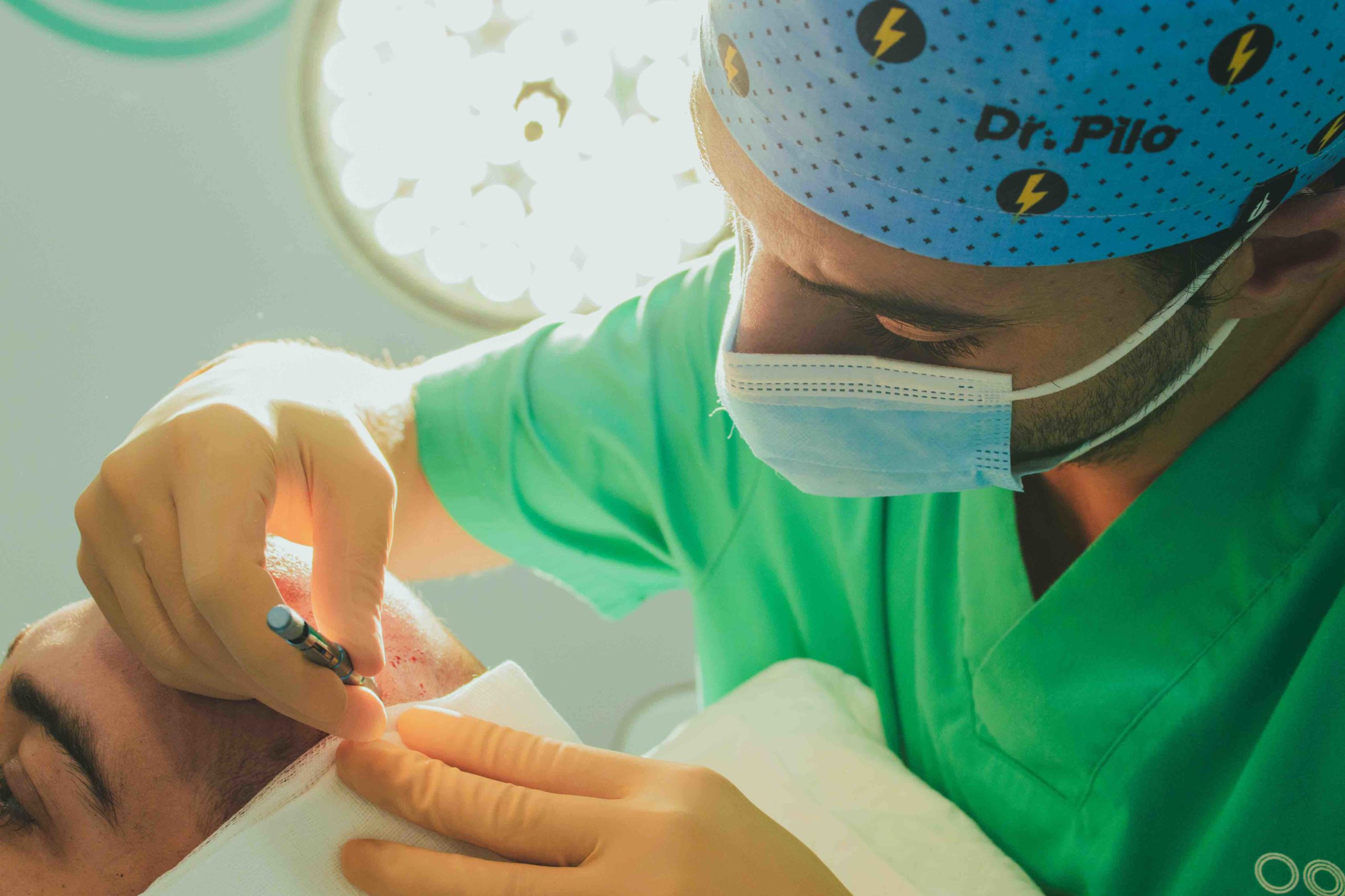
The capillary implant is a minimally invasive technique by which hair follicles are implanted in areas with baldness, but it is still a surgical intervention. Therefore, it is necessary to resort to anesthesia in a capillary graft to be able to carry it out without the patient feeling pain. What type of anesthesia is used in this surgery? Does it have side effects?
At blog de Hospital Capilar, hair clinic in Spain experts in hair grafting in Madrid, Murcia and Pontevedra, we tell you everything you need to keep in mind about anesthesia in a hair transplant.
Hair transplants are one of the most demanded techniques to put an end to baldness today. It requires a qualified medical team and they are completely safe and routine surgeries in a hair clinic. In addition, they are minimally invasive and ambulatory, that is, they do not require the patient to be hospitalized, but once the intervention is over, they can return home normally.
The hair implant consists of the extraction of the follicles from the donor area and their subsequent implantation in the area affected by alopecia. In order to carry out the transplant, anesthesia is required, so the patient will not feel any discomfort. The type of anesthesia in a hair transplant is only local anesthesia, so the patient remains awake and conscious at all times. In no case is general anesthesia used to perform a hair implant, since it is not necessary in any case.
The patient is also lightly sedated by oral medication so that he is calm and relaxed during the approximate 7 hours that the surgery lasts. Furthermore, in Hospital Capilar We have entertainment systems in the operating rooms to liven up the intervention.
In order to apply anesthesia in a capillary graft, it is essential to control certain aspects of the patient. To do this, during the hair transplant preoperative period, the medical team makes sure of several things.
First, a blood test is requested from the patient in order to verify their health status. In this analysis, the surgeon studies the possible risks of providing anesthesia in a capillary graft, and other types of aspects such as blood coagulation, healing capacity and possible immunological diseases.
Some types of medications that the patient may consume on a routine basis can interfere with anesthesia in a hair transplant. It is for this reason that the doctor asks the patient what medication they take and, in some cases, they must stop taking it days before surgery.
It is essential to know the patient's allergies, especially if they are allergies to medications or reactions to anesthesia such as that used by the dentist. All this is carefully studied weeks before surgery so that it unfolds in the best way.

It is common to ask ourselves if a capillary graft hurts. It is a painless intervention precisely due to the application of local anesthesia in a capillary graft. Of course, this is the only phase of a hair transplant that bothers and can cause pain.
Anesthesia is applied by subdermal injections throughout the patient's scalp. The repeated introduction of the needle usually causes some discomfort in the patient. For this reason, in Hospital Capilar We have preanesthesia, through which we manage to considerably reduce the pain of applying anesthesia in a capillary graft.
Another of the most frequently asked questions regarding anesthesia in a capillary graft is the possible side effects derived from its application. Normally, complications do not arise after surgery, since the medical team provides the postoperative instructions to be followed precisely to avoid possible risks. However, various effects can occur after anesthesia.
During the hair transplant, a large amount of fluids are injected, which are eliminated naturally by the patient's lymphatic system. Until they are eliminated, these liquids remain in the patient's head and if medical indications are not followed, such as putting on the tape or not bending the head, the liquids run down the face causing edema and inflammation.
Another possible side effect of the anesthesia used in a hair implant is decreased sensation in the head. This is temporary and does not pose a serious problem for the patient's health. Once the effects of anesthesia wear off, the patient will once again have all the sensitivity they had before.
Burning or itching are the most common symptoms in the days after surgery. This is not because of the anaesthesia, but because of the small wounds made on the implant that are healing.

It is normal for us to have doubts and many questions about the hair implant, expectations regarding results and care to follow, among others. In Hospital Capilar we can help you. Request your medical diagnosis and advice from our professionals and put yourself in the best hands.
Sanitary Reg. No. Pontevedra: C-36-003121 Sanitary Reg. No. Madrid: C517593 Sanitary Reg. No. Murcia: 30800014


Copyright © 2021 - Legal Notice and Privacy Policy - Cookies policy